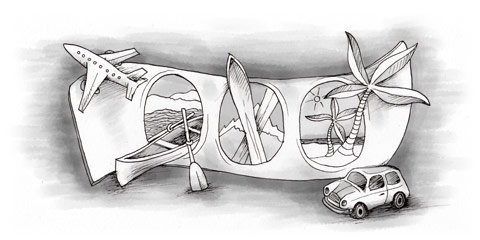To import your car to Switzerland, it is recommended to do it at a major border check point. Smaller border posts are not always able to process a car import, unless there is a prior notice.
The first thing you need to do is contact the customs authority. They will draw up a report that you must submit for technical inspection. You must also submit documentation confirming the value of the car and its country of origin. You may be asked to submit a certificate of compliance as well.
If you owned your car for less than six months, you must pay four taxes:
- Custom duties – This tax is based on the weight of your car and engine capacity. Before weighing your car, make sure you removed all your baggage and non-standard accessories. Motorbikes pay a set duty.
- Consumption tax and VAT – Both taxes are around 4% of the car's worth.
- A fee for the report from customs authority
If you wish to import a car that you owned for more than six months, it will be considered part of your personal effects. To avoid paying for an import duty and VAT you will need to fill in a clearance request form for moving purposes. You will be able to drive your car with foreign plates for one year. You won't be able to sell, rent or loan your car during that year.
A month after you import your car, the Motor Registration Office will send you a letter to inform you that after one year your car will have to pass the official motor-vehicle inspection at your canton of residence. If you want to obtain Swiss plates, your car must pass the same inspection.
Exempt of import duty and VAT
The following cases are exempt of import duty and VAT:
- Import for marriage trousseau – if the car is considered to be part of the goods acquired by a newly married couple.
- Import for succession purposes – if the car is considered to be part of inherited goods.
- Import for foreign diplomats – if the owner of the car has diplomatic or consular privileges and immunity.


